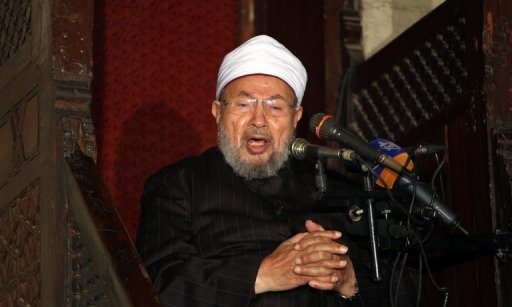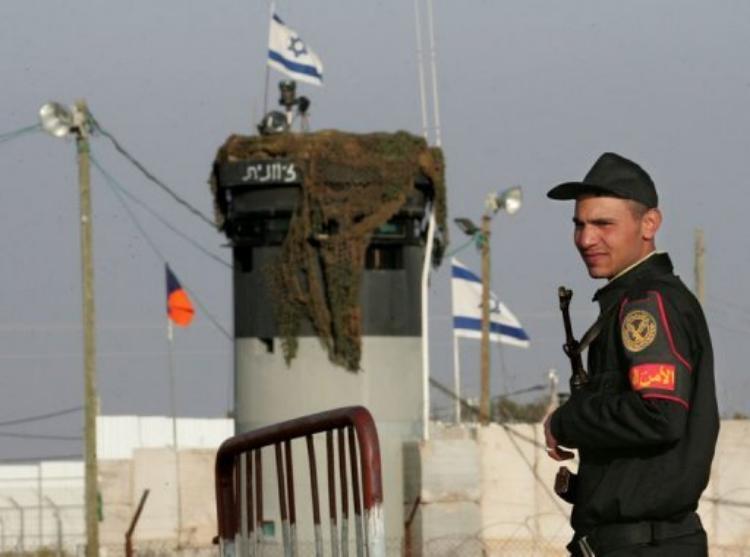CAIRO: Yafa Al-Mozain, an 18-year-old student from Gaza City, spends her days surfing the Internet and watching TV while awaiting an exit permit from the Israeli authorities to leave Gaza since she attends Birzeit University in Ramallah on the West Bank but has missed the whole first semester of her studies. Yet she is still hopeful that she will leave in time to catch the second term.
Al-Mozain is one of approximately 670 Gaza students who have been denied permission to leave Gaza by the Israeli authorities to pursue higher education in countries like Egypt, Jordan, Germany, and the UK, since Hamas seized the Gaza in June this year.
The students are among approximately 6,400 Gazans with work permits, foreign citizenship, or student visas who are currently prohibited from leaving the area.
“We are living in a really hard situation. Many people can’t see their families outside Gaza. I can’t get permission to attend my university. It’s really hard, but we still have hope, Al-Mozain said in an email interview with Daily News Egypt.
Ghassan Al-Mattar, 25, was recently granted the prestigious Fulbright Scholarship to study Business Information Systems at a University in the US. Al-Mattar was supposed to start his studies this fall, but has not yet been able to leave Gaza to conduct his visa interview.
“Time is running out and the chances of starting our studies decreases every day, Al-Mattar told Daily News Egypt.
New York-based rights group Human Rights Watch recently published an audio-report on the issue, denouncing the “arbitrarily blocking of students by the Israeli government.
“Israel seems determined to punish all Gazans, including students, for the behavior of Hamas, said Sarah Leah Whitson, director of HRW’s Middle East division. “Israel should not make young people seeking education pay the price of its conflict with a political or military group.
However, Shani Cooper-Zubida, from the Media Affairs Department at the Israeli embassy in Cairo, told Daily News Egypt that “Israel is planning an exit plan for the students and other Palestinians who are trying to get in and out of Gaza.
Cooper-Zubida added that the exit plan will hopefully enter into force within the next week.HRW maintains that universities in Gaza “do not offer degrees in a variety of subjects including undergraduate degrees in languages other than Arabic, English and French. Doctoral degrees are apparently not offered at all in Gaza or the West Bank.
Frustrated over her current situation, Al-Mozain told Daily News Egypt that she would consider enrolling in a University in Gaza if the Israeli authorities do not allow her to leave in time for the next semester.
“I really don’t think wasting another semester is a good idea. I’m not going to waste a year of my life because of this. So yes, I’m considering enrolling at a university here in Gaza, she said.
A large number of the trapped students; around 400 out of the 670 total are trying to enter Egypt to begin or resume their studies – a difficult task following the Israeli closure of the southern crossing from Gaza to Egypt at Rafah on June 9.
Hani Sami Louzon, 22, a student at the Law Faculty at Beirut University in Alexandria, says he has been trapped in Gaza for five months since he returned home in the summer to visit his family.
“I am suffering greatly from this closure. It is essential to me and my friends to leave the Gaza Strip and complete our studies, Louzon said in an interview with HRW.
HRW reiterates that neither Egypt nor the Palestinian Authority has put considerable pressure on Israel to reopen the crossing.
“The countries where these students are hoping to go should speak out about this violation of basic rights, Whitson said. “It is in no one’s interest for Gazans to be denied access to higher education.
As an alternative to the closed border crossings at Erez and Rafah, Israel and the Palestinian Authority have reportedly suggested the Kerem Shalom crossing in Israel, located near the Gaza-Egypt border for transfers of people and goods.
Since Kerem Shalom lies under Israeli control, the proposal has not proven popular with Hamas, who has previously launched rocket attacks on the crossing to hinder usage of it.
Earlier in the fall, the Israeli authorities reportedly allowed a bus shuttle service to transfer people through the Erez crossing and on to the Nitzana crossing between Israel and Egypt. According to HRW, the Israeli military discontinued the service on Sept. 12 and no buses have supposedly been running since.
Only a few days following the halt of the shuttle service, Israel declared Gaza “hostile territory and voted to impose “restrictions on the movement of people to and from the Strip. HRW stresses that the movement of people and goods in and out of the Gaza territory has decreased in number significantly since the vote.
“Egypt, the Palestinian Authority and Hamas share some blame for trapping the Gazan students, Whitson continued. “But ultimate responsibility rests with Israel, which has the ability and legal obligation as the occupying power of Gaza to promote free movement and access to education.
According to Cooper-Zubida, the Israeli authorities are planning to start allowing passenger traffic through the Kelem Shalom border again as soon as the “infrastructure of the passage way is fixed.
When asked whether Kelem Shalom is a safe alternative considering Hamas’ previous rocket attacks on the crossing, Cooper-Zubia responded that “we hope that everything will be ok. We can’t control them.
Furthermore, Cooper-Zubida emphasized that the Palestinian Authority is responsible for providing the Israeli government with a list of those people who are entitled to move between Gaza and Egypt.
One of the few Gaza students who have been able to leave and get back to his studies is Mohamed Al-Alem, 19, a second-year student enrolled at the American University in Cairo on a full scholarship.
Al-Alem traveled to Gaza in June to visit his family after completing his first year at AUC and subsequently got stuck.
“I used all the contacts I had with the Palestinian Authorities, but it was all in vain. I slept a lot in order to let time pass. I sat on the couch watching TV and listening to music for hours, Al-Alem said in an email interview with Daily News Egypt.
Things turned for the better, however, when he started volunteering in a local community service program in August organized by the American NGO AmidEast (America-Mideast Educational Training services).
“They [AmidEast] knew my case and that I have a scholarship, so they included my name with the other scholarship students and sent it to the American embassy to get the permit, Al-Alem said.
After two and a half months, Al-Alem received the green light to leave and crossed through Israel over to the West Bank, into Jordan, and finally over to Egypt.
He will continue his studies in Business Administration at AUC in the spring.
Hundreds of miles away from Cairo, Al-Mozain is waiting in Gaza to hear back from the Israeli authorities on her third application for an exit permit. Her application has been rejected twice already for “no reason, she says.


